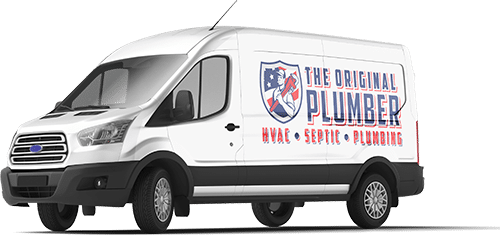If you’re moving to the Atlanta, GA area, you’re likely to come across septic tanks when you’re househunting. If you’ve always been connected to the city sewage system, then buying a house with a septic tank can feel a bit nerve-wracking.
But don’t worry – buying a house with a septic system does not have to be life-changing or costly if you know what to expect.
Septic tanks work by removing wastewater from homes and then disposing of it off-site in a safe manner. There’s no doubt that they are necessary for people living out in rural areas where municipal sewage systems aren’t available or who live too far away from them.
Before you collect the keys and settle into your new home, it’s important to understand how septic tanks work. This will help you make a more informed decision as a home buyer. Here’s everything you need to know before buying a house with a septic tank.
Understanding How a Septic System Works
Knowing how a septic system works helps you understand the needs of your tank. A septic tank is an underground system. Your wastewater from your toilets, washing machine, sinks, and showers all drains down through pipes and into your septic tank.
Heavy solid waste settle at the bottom of your tank and form a sludge layer. They’re separated from lighter materials, which creates a scum layer at the top.
Your liquid waste water rests in between the sludge and scum layer. This is also known as effluent. The effluent moves out of your tank, through pipes, and into your drain field (also known as a leach field). Your drain field contains soil or gravel. The gravel or soil filters the harmful bacteria out of the effluent as it flows through.
Benefits of Having a Septic Tank
Knowing exactly what to expect before you move in can help you make a better decision before buying a house with a septic tank. Here are a few of the perks of having a septic system for your home.
No Monthly Utility Bill
When you’re hooked up to the municipal city sewer system, city sewer costs are included in your utility bills. This monthly expense is eliminated for homeowners with septic systems.
Septic Systems Mostly Maintain Themselves
Septic tanks can last up to 40 years if they’re properly maintained. As long as you have routine maintenance on your tank, everything should run smoothly without you needing to do much. You can help elongate your tank’s life by being conscious of water usage and what you put down your drains.
Emergencies Are Smaller Scale
In the event of an emergency, the issue is much smaller scale than it would be if you were connected to the city’s municipal sewage system.
For example: in the event of a sewage backup, you would not have your neighbor’s sewage encroaching on your property. Plus, with a septic system, a sewage backup only impacts your property rather than your whole neighborhood’s. This containment is safer for you, your neighbors, and the environment.
What You Should Know Before Buying
Having a well-maintained septic tank with regular service can prevent most issues. However, here are some things you’ll need to be aware of before you purchase a home with a septic tank.
Septic Tanks Require Regular Proper Maintenance
The last thing you want is a sewage backup in your home. Luckily, a sewage backup is fairly easy to prevent. If you have regular septic system maintenance, then you can prevent most of the costly issues that homeowners run into.
Homeowners Are Responsible For All Maintenance
The government is responsible for municipal sewer pipes and lines. When you’re connected to the city line, then you don’t need to worry about maintenance and repairs.
However, septic systems are on an individual basis. If you run into any septic issues, including septic tank backups, then it is up to you to make sure it is fixed. However, knowing what to look for – like standing water over your drain field and bad odors – is half the battle in preventing larger issues.
Get A Septic System Inspection Before Move-In Day
If you’re moving into a new home, we recommend having a septic tank inspection. This should be part of your home inspection process. Some states and lenders require this before the title transfer. Either way, a septic inspection is an important step to making sure your septic system is properly maintained.
During our septic inspection process, we can evaluate:
- Sludge levels in your tank
- The drain field location (it should not be located near any bodies of water or a well to prevent contamination)
- The size of your tank to make sure it is large enough for your home
- The tank’s condition to ensure it does not have any leaks or cracks
- How well the baffles are connected to inlet and outlet pipes
- Drain lines and making sure they receive an equal amount of water
For your septic system needs, give The Original Plumber & Septic a call. Our licensed professionals service the Northern Georgia area.
We pride ourselves on honest and upfront pricing so you do not run into any surprises down the road. And if you ever need an emergency septic service, we are available 24/7.
Frequently Asked Questions
Will you need to tear up my yard to access my septic tank?
If your septic tank has an exposed lid, then we won’t need to dig into your yard. However, if you do not have an exposed septic tank lid, we’ll have to dig over a small part of your yard to access it.
What can I put in my septic tank?
Your septic tank can only handle your wastewater. You should avoid putting the following down your drains:
- Cat litter
- Dental floss
- Excessive bleach or chemicals
- Paint (this is a big cause of septic system failure)
- Paper towels
- Coffee grounds
- Feminine hygiene products
These can contribute to clogs in your septic tank. You should also not put in any chemical additives, as these can disrupt the helpful bacteria in your tank.
There are also specific types of toilet paper we recommend you use with a septic tank. Heavier, thicker toilet paper can clog more easily in your tank. Look for septic-safe toilet paper brands when you shop. If you aren’t sure if your toilet paper is septic safe, one easy way to check is to make sure it is 1-ply or 2-ply.
What are the signs of a failed septic system?
There are some common septic tank problems that can indicate septic system failure. If you notice any of these signs, give The Original Plumber & Septic a call for septic inspection service. We can help you fix the problem.
- Your toilets and drains are backing up
- Your toilets are taking a long time to flush
- Your sinks and bathtubs are draining more slowly
- You can smell sewage coming from your drain field area
- There is standing water near your drain field and septic system
How often should my septic tank be pumped?
We recommend pumping your septic tank every three to five years. However, if you have additional systems like a garbage disposal unit in your kitchen, you may need to have your tank pumped more often.
What causes a septic tank to back up?
A few things can cause your septic tank to back up.
- Tree roots growing through sewer lines and obstructing the flow
- A cracked, aging sewer line
- Storm drainage overwhelming your system
All of these issues can cause your system to block. The blockage is what eventually causes the backup.
Is my septic system connected to my drinking water?
No, your septic system and drinking water are completely separate. If you buy a home with a septic system, it will likely also be connected to a private well. These private wells provide your drinking water.
What material is my septic system made out of?
A concrete septic tank is one of the most common types. These are generally very durable and can last you for thirty to forty years.
Fiberglass septic tank systems are also popular, as they are less likely to crack than concrete. They also will not rust.
Plastic septic tank systems are also durable and less likely to rust or crack. But they are very light and thus can be prone to damage.
Steel septic tanks are not as popular. These only last around twenty years because they can rust. Once they corrode, they become a safety hazard since they won’t be able to support the weight of the ground level above.
Aerobic septic systems use oxygen to treat your wastewater (unlike other system types). These are more expensive than a conventional septic system but are better suited for smaller properties. This is because they don’t require a large drain field. Aerobic systems break down solids faster, so they’re a good choice if you have a high water table.
If you aren’t sure which type of septic system you have, our septic tank pros can help you determine this during your inspection.




